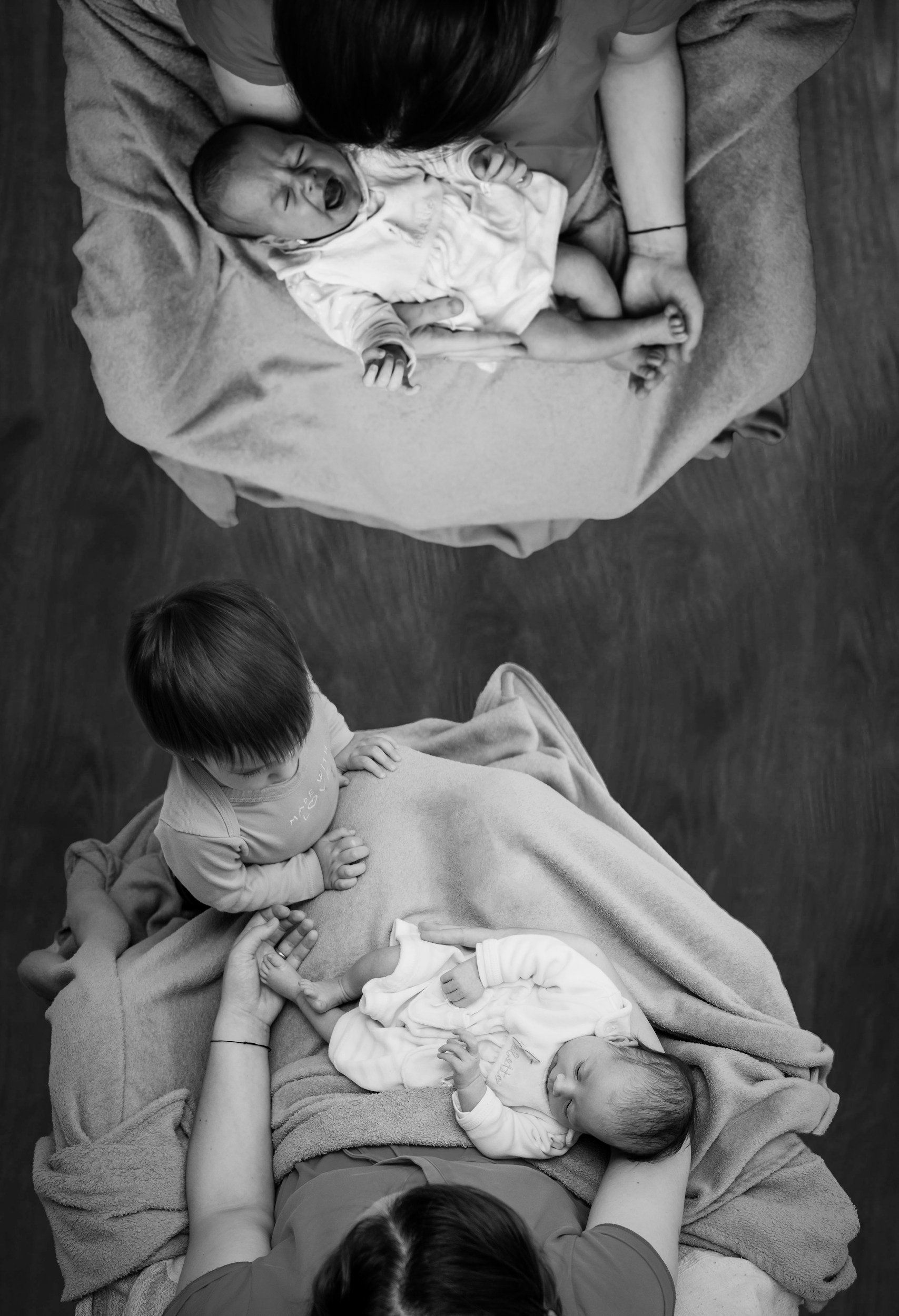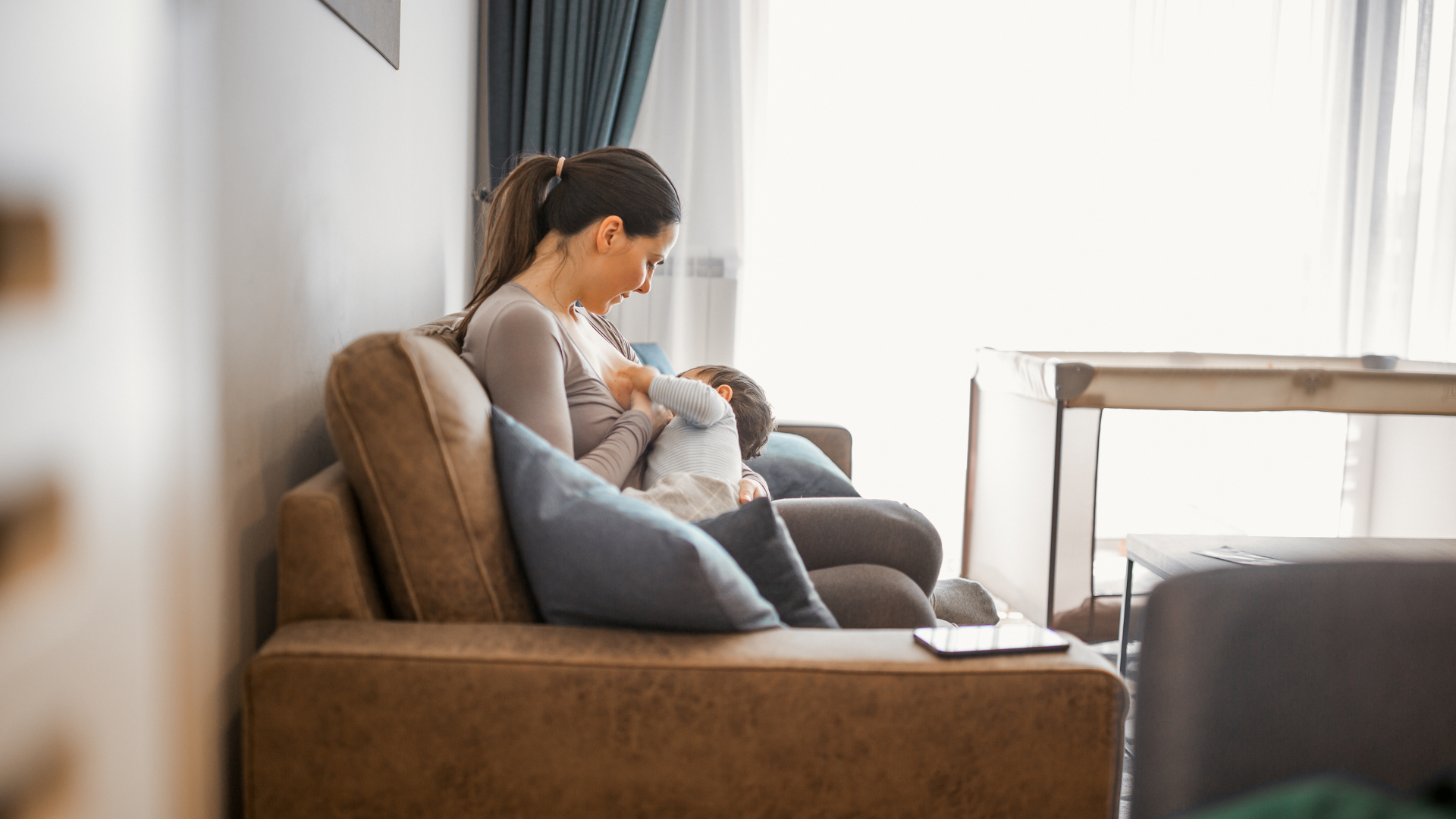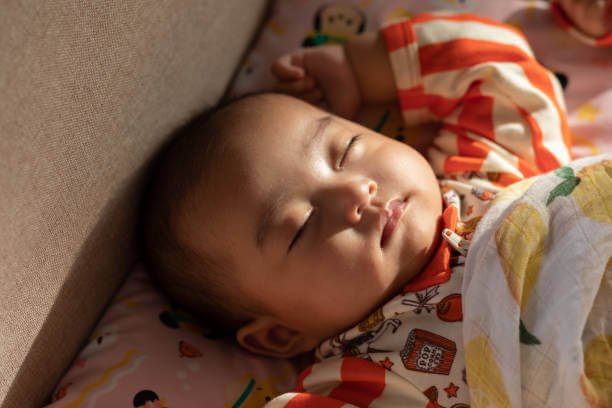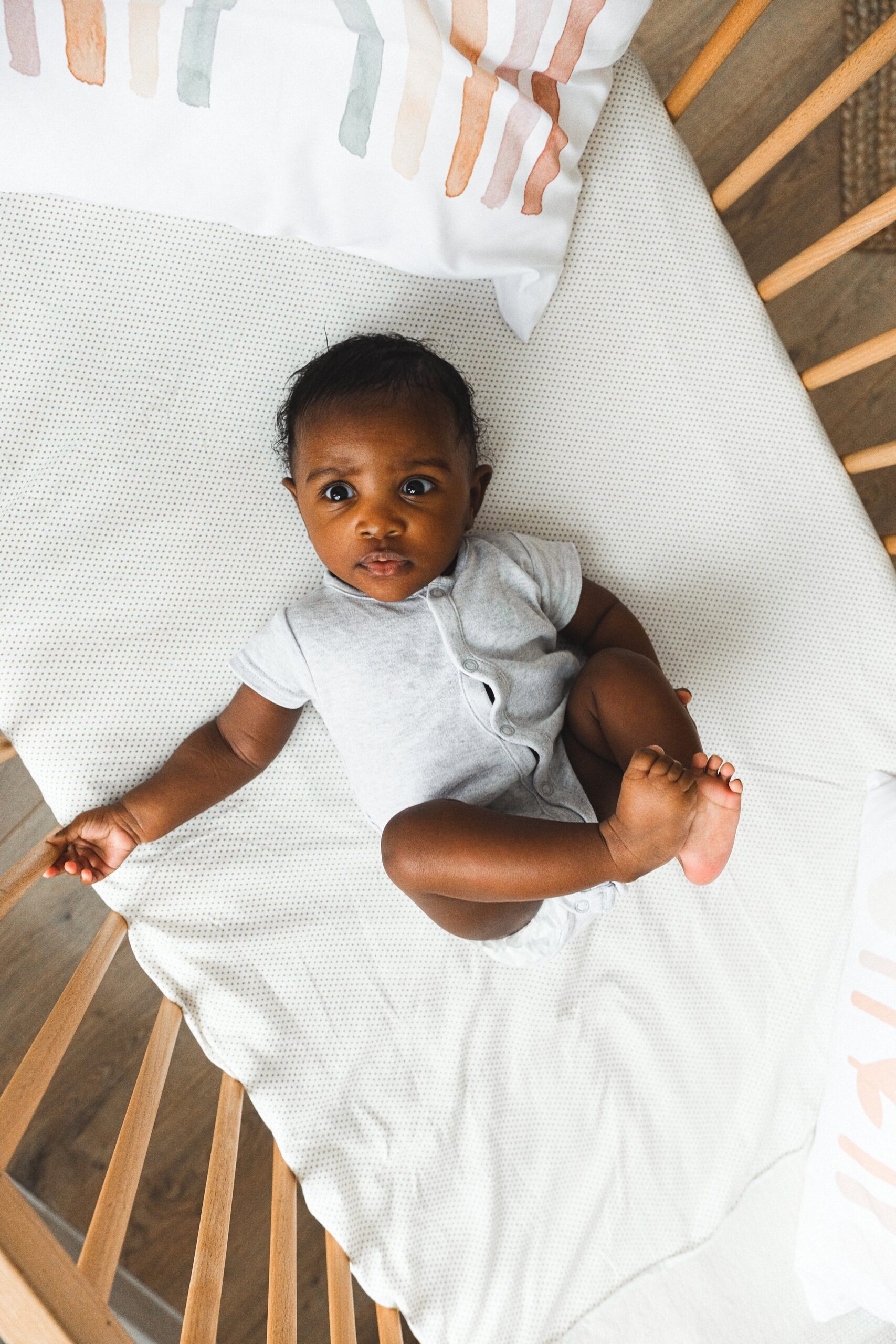I'm Rachael
Mom of 3 & Baby Sleep Expert with Big Sis Energy
& I’VE DONE ALL THE RESEARCH FOR YOU ALREADY.
Better sleep for the entire family
BROWSE COURSES
hey!
Teething: Does it Really Disrupt Sleep?
in this post:
Teething is the process of teeth moving and breaking through the gums. This is a normal developmental stage for your baby. It usually lasts until about age 2.5 or 3 years (though not constantly!), until later molars come in. Teething can be so rough on both baby and parent. Have you ever stopped to think about just how much it must hurt? OUCH! I could cry just thinking about it. Keeping this in mind, of course your baby is going to be extra fussy and irritable when they’re teething. And of course sleep might suffer for a little while, especially if the teeth are coming in back to back or multiple at a time! This is all very normal but I know it can be really tough to deal with.
This being said, teething is often used as a scapegoat for lots of other things. Teething really shouldn’t affect your baby or their sleep for more than a few days (unless they get them back to back) before and after the tooth pops through. Keep reading for common misconceptions plus what’s actually going on with your teething babe.
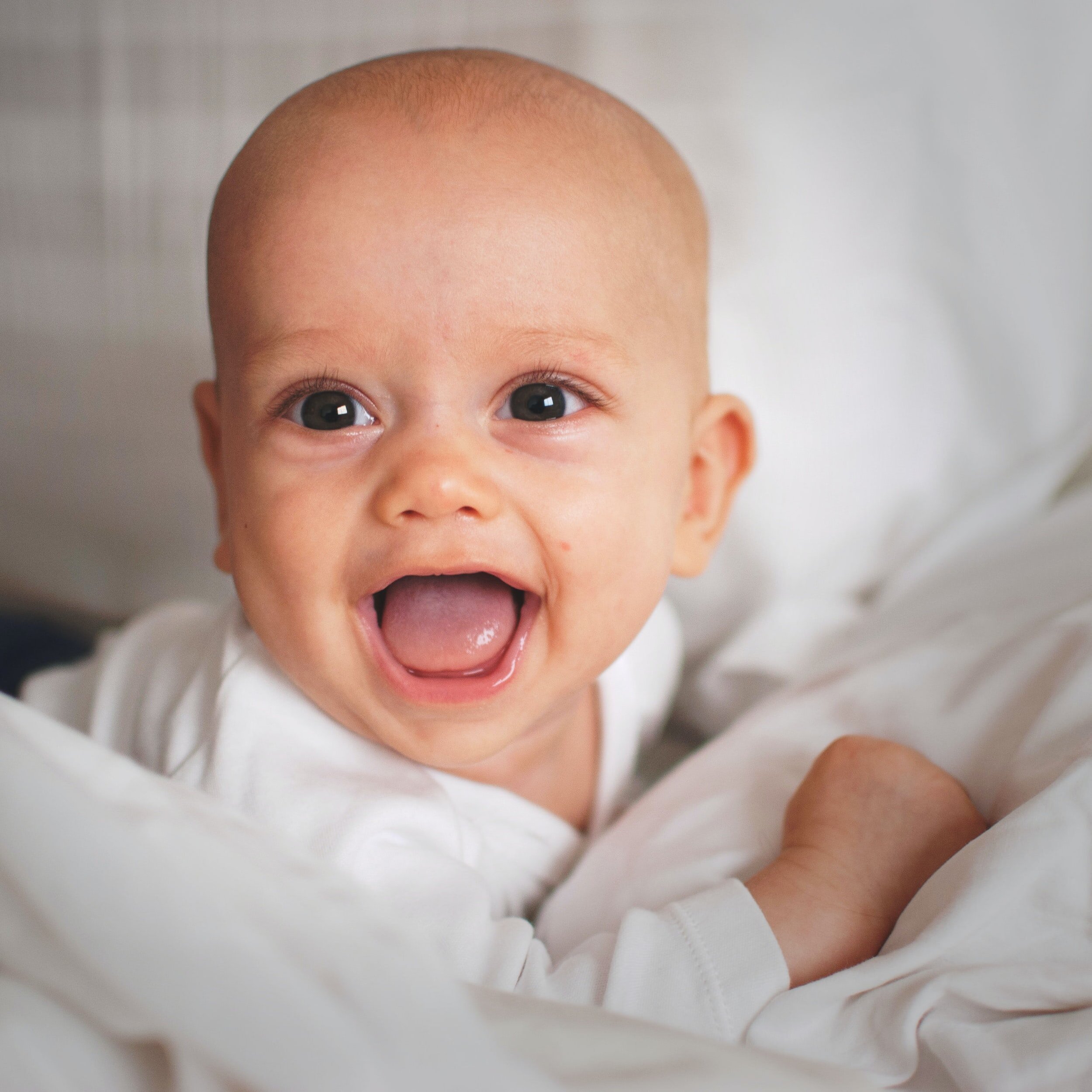
what to know about teething and common misconceptions
-
Usually starts around 6 months, though some babies will cut their first tooth as early as 2-3 months and some won’t get theirs until a year!
-
Symptoms should only be present for a few days before and after the tooth actually cuts through, not weeks. Symptoms were only significantly more frequent in the 4 days before a tooth emergence, the day of the emergence, and 3 days after it, so this 8-day window was defined as the teething period (Macknin et al 2000).
-
You may see some redness at the site of eruption on the gum, and a tiny white bud
-
Drooling excessively is also not necessarily a symptom of teething. Around 2-3 months, the third set of baby’s salivary glands are maturing, so you’ll notice extra drooling but not necessarily teething!
-
Babies will naturally want to put things in their mouth, suck their hands, etc., so these behaviors also do not necessarily indicate teething
-
One of the biggest indicators of teething is increased fussiness/ irritability, and baby wanting to nurse more frequently. You’ll also likely see more interrupted sleep, as tooth pain can be exacerbated when laying flat.
-
According to a 2000 study on 125 infants, Increased biting, drooling, gum-rubbing, sucking, irritability, wakefulness, ear-rubbing, facial rash, decreased appetite for solid foods, and mild temperature elevation were all statistically associated with teething. Congestion, sleep disturbance, stool looseness, increased stool number, decreased appetite for liquids, cough, rashes other than facial rashes, fever over 102 degrees F, and vomiting were not significantly associated with tooth emergence. This means that if your infant is exhibiting symptoms like this, it’s likely unrelated and they should be checked by a doctor for their symptoms rather than chalking it up to teething. Other studies find that teething coincides with increased drooling, diarrhea, and fever. It remains unclear whether certain symptoms and disturbances are caused by the eruption of the primary teeth or whether they simply coincide with tooth eruption and there is some disagreement about this amongst professionals and in the literature.
why does teething tend to seem worse at night?
Many parents report that teething pain and discomfort seems to be worse at night. There are a few potential reasons that teething seems to affect our babies sleep even if they seem unbothered during the day. For one, they’re more distracted during the day, and are more frequently nursing or bottle feeding, eating foods, mouthing toys, and sucking their fingers or hands for support. Teething pain also seems worse when we’re laying flat because there is increased pressure in the head. Another factor could be that levels of the anti-inflammatory hormone cortisol are naturally lower at night.
natural remedies to help teething
-
Experiment with different temperatures. Some babies really love cold teething toys (without the gel filling) or sucking on cool washcloths (soak in breastmilk/ formula then refrigerate, or water for babies over 6 months). Other babies love things that are warm, though, like a warm washcloth to suck on.
-
Breastmilk/ formula popsicles, or for older babies already on solids, smoothie popsicles or partially frozen fruits, veggies, or a partially frozen bagel
-
Extra nursing or feeding
-
Offering pacifiers or silicone teethers
-
Babywearing
-
Contact napping so baby can lay more upright
-
Rub your baby’s gums with a clean finger
-
Empathize with baby’s pain, give extra cuddles and attention
-
Check in with your doctor if you want to try any pain medication or homeopathy
things to avoid
-
Amber necklaces (strangulation/ choking hazard)
-
Teething gels (many contain benzocaine which can be very harmful for babies)
-
Toys with gel filling (could explode and be ingested)
-
Leaving baby to cry/ fuss or ignoring their need to feed more frequently for comfort
Sources:
Macknin ML, Piedmonte M, Jacobs J, Skibinski C. Symptoms associated with infant teething: a prospective study. Pediatrics. 2000 Apr;105(4 Pt 1):747-52. doi: 10.1542/peds.105.4.747. PMID: 10742315.
Noor-Mohammed R, Basha S. Teething disturbances; prevalence of objective manifestations in children under age 4 months to 36 months. Med Oral Patol Oral Cir Bucal. 2012 May 1;17(3):e491-4. doi: 10.4317/medoral.17487. PMID: 22143712; PMCID: PMC3476083.
Featured
Responsive sleep tips and support for parents of multiples or twins.
What are floor beds? When to use them? And How to use them?
Before you start changing anything it’s important that you have ruled out any underlying reasons why your infant might have such a strong link to staying latched.
binge reads
We think you'll love these
You deserve to the
baby stage, not just "survive it."
And you DON'T have to sacrifice your values, ignore your instincts, or force yourself to follow a method you don't align with just to get your baby back to sleep.
I’m here to help you create a restful, sustainable sleep environment that honors both your baby’s needs AND your own (without the stress OR the guilt!) because, no, you don’t have to choose between the two.
enjoy!
BABY SLEEP COURSES →
BABY SLEEP CONSULTS →
Wish you could help your baby sleep better without resorting to sleep training? Download my FREE guide to a good night’s sleep and learn 8 simple, science-backed tips for supporting your child’s needs.
Traditional sleep training methods don’t have to be your solution to better sleep.
SLEEP TRAINING ISN’T THE ONLY WAY TO GET GOOD SLEEP
Hey, I'm Rachael and Hey, Sleepy Baby is for parents who want to get their nights back, without sleep training their babies.
NO ONE TOLD US POD
explorING the untold truths of parenting
